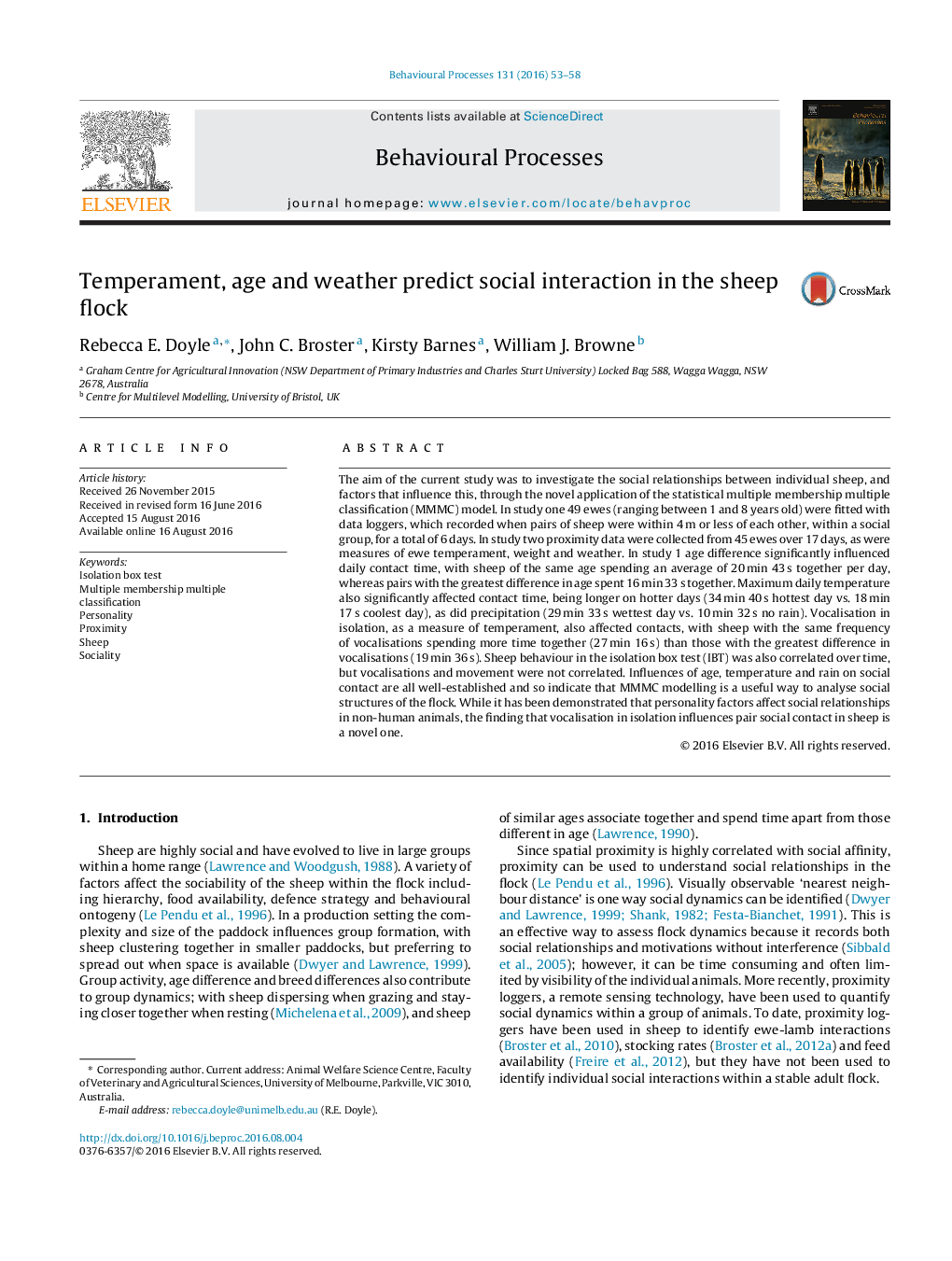| Article ID | Journal | Published Year | Pages | File Type |
|---|---|---|---|---|
| 2426369 | Behavioural Processes | 2016 | 6 Pages |
•Sheep appear to have temperament-related social preference for specific individuals within a flock.•Age, rainfall and temperature all affected social interactions of the sheep flock.•Vocalisations and movement in isolation were poorly correlated with each other, suggesting they reflect different things.•MMMC modelling can analyse social structures of the flock and make predictions on how animal or environment circumstances affect social behaviour.
The aim of the current study was to investigate the social relationships between individual sheep, and factors that influence this, through the novel application of the statistical multiple membership multiple classification (MMMC) model. In study one 49 ewes (ranging between 1 and 8 years old) were fitted with data loggers, which recorded when pairs of sheep were within 4 m or less of each other, within a social group, for a total of 6 days. In study two proximity data were collected from 45 ewes over 17 days, as were measures of ewe temperament, weight and weather. In study 1 age difference significantly influenced daily contact time, with sheep of the same age spending an average of 20 min 43 s together per day, whereas pairs with the greatest difference in age spent 16 min 33 s together. Maximum daily temperature also significantly affected contact time, being longer on hotter days (34 min 40 s hottest day vs. 18 min 17 s coolest day), as did precipitation (29 min 33 s wettest day vs. 10 min 32 s no rain). Vocalisation in isolation, as a measure of temperament, also affected contacts, with sheep with the same frequency of vocalisations spending more time together (27 min 16 s) than those with the greatest difference in vocalisations (19 min 36 s). Sheep behaviour in the isolation box test (IBT) was also correlated over time, but vocalisations and movement were not correlated. Influences of age, temperature and rain on social contact are all well-established and so indicate that MMMC modelling is a useful way to analyse social structures of the flock. While it has been demonstrated that personality factors affect social relationships in non-human animals, the finding that vocalisation in isolation influences pair social contact in sheep is a novel one.
